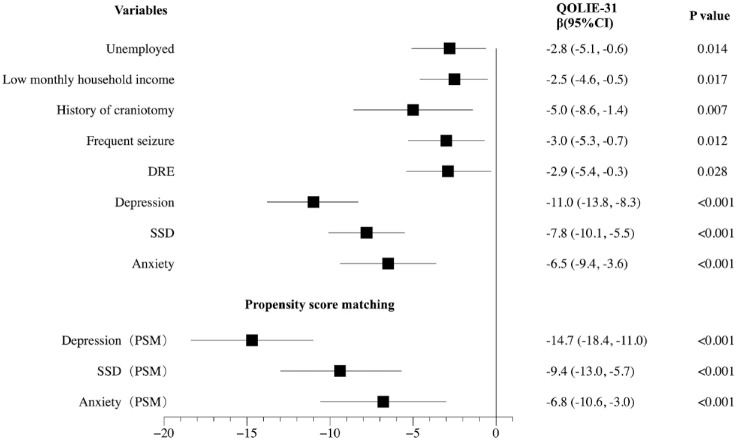Figure 3.
Multivariate analyses of the QOL of epilepsy people before PSM and effects of depression, anxiety, and SSD on the QOL of PWE after PSM.
Multivariate analysis revealed that unemployed [β (95% CI): –2.8 (−5.1, −0.6), p = 0.014], low monthly household income [β (95% CI): –2.5 (−4.6, −0.5), p = 0.017], history of craniotomy [β (95% CI): –5.0 (−8.6, −1.4), p = 0.007], frequent seizures [β (95% CI): –3.0 (−5.3, −0.7), p = 0.012], DRE [β (95% CI): –2.9 (−5.4, −0.3), p = 0.028], depression (95% CI): –11.0 (−13.8, −8.3), p < 0.001), SSD (95% CI): –7.8 (−10.1, −5.5), p < 0.001), and anxiety (95% CI): –6.5 (−9.4, −3.6), p < 0.001) were independent indicators of the QOL of PWE. After PSM, the multivariate analysis results indicated that depression, SSD, and anxiety all had an independent effect on QOL in PWE (all p < 0.001). Moreover, depression had the greatest effect in reducing QOLIE-31 scores, followed by SSD and anxiety (β: –14.7 versus –9.4 versus –6.8).

